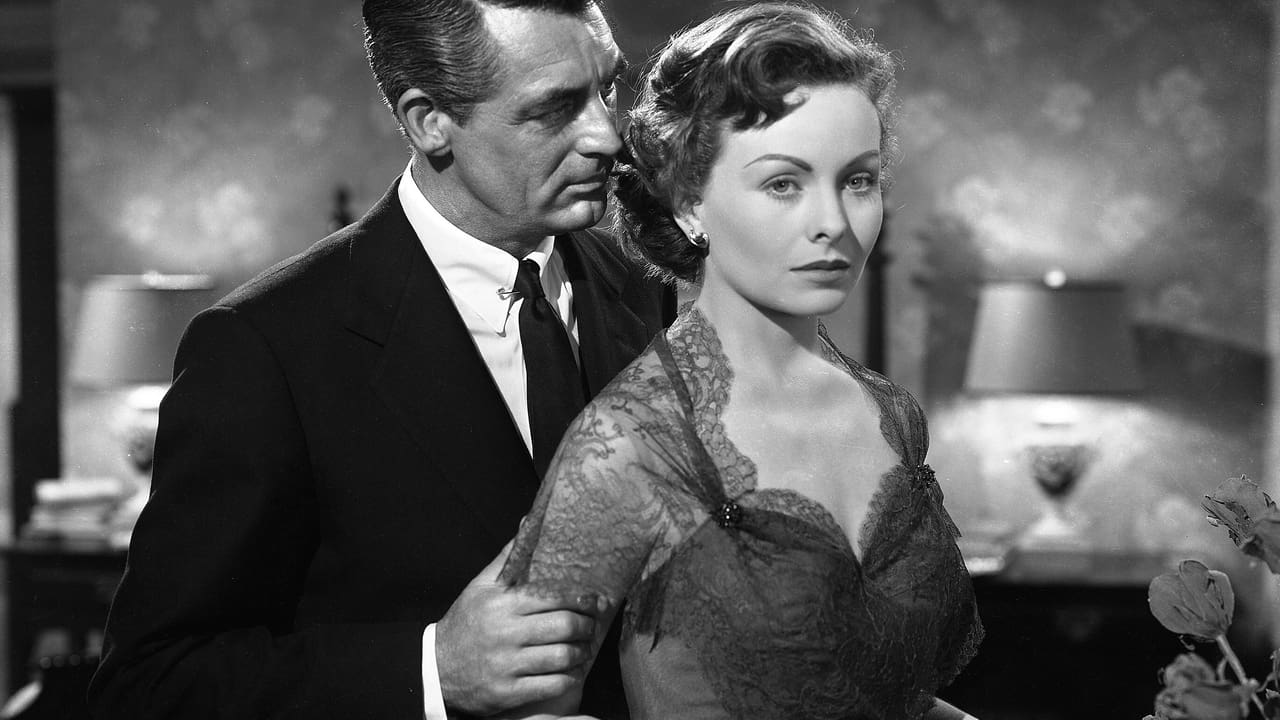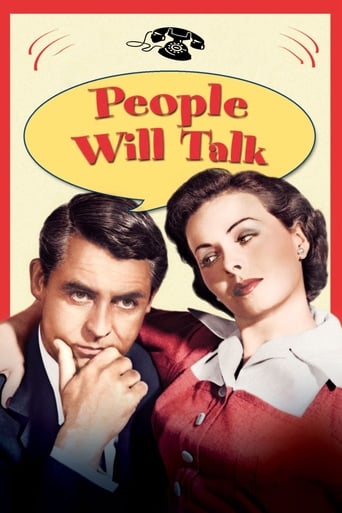Rijndri
Load of rubbish!!
Libramedi
Intense, gripping, stylish and poignant
Maidexpl
Entertaining from beginning to end, it maintains the spirit of the franchise while establishing it's own seal with a fun cast
Tyreece Hulme
One of the best movies of the year! Incredible from the beginning to the end.
sol-
Persecuted by his colleagues for his unconventional approach to medicine, a philanthropic medical school lecturer has to balance being put on trial and keeping a pregnant unwed woman from killing herself in this lesser known Cary Grant film. If a rather obvious McCarthyiasm allegory, the film works quite well as a tale of intolerance and the ease of losing sight of the role demanded by one's job; "my business is to make sick people well" claims Grant quite pointedly early on. The film possesses a superb mystery element that constantly keeps the proceedings afloat. The sketchy details of Grant's past and the true identity of Finlay Currie as his mysterious companion make for excellent mysteries with the suggestion of something sinister in the air. The film is only part mystery-drama though. It is also a romantic comedy at least a third of the time, and the film never really clicks in romantic comedy mode. Jeanne Crain certainly gives it her best as Grant's suicidal young love interest, but the bond between them always feels more like surrogate daughter and father figure. Not only is Grant is old enough to have been her father, he looks almost as old as the actor who plays her father. The romantic sparks between them never ignite either, a single barn scene aside. The film is not very funny either despite some zesty dialogue. Much of the dialogue is, however, thoughtful and philosophical, and the film has a lot of interesting things to say, and as long as one enters the film expecting a mystery-drama and not a romantic comedy, it is hard to imagine it disappointing.
rlp687
This is one of the most intelligent screenplays in my opinion. The good natured banter between Cary Grant and Walter Slezak is both witty and entertaining. I enjoyed Grant's character immensely and the supporting characters were more than just mere conveniences for the good Dr.'s outlook and take on "making people well". A thoroughly enjoyable film that with numerous viewings enhances its enjoyment. Other than "All About Eve" Joseph Manckewicz'finest work as director. I do not comprehend other comments that this film is a mess. It most certainly is not. Grant does not rely on his good looks or his patented charm, but rather an intellect infused with subtle compassion as evidenced in the scene with the elderly female patient in his clinic. Good film which merits more than one viewing to justify appreciation.
Robert
"People Will Talk" hearkens back to those classic Hollywood...oh, who the hell am I kidding: it's utter rubbish. Every second of watching it, you're slapped upside the head with the fact that it's a wooden script written by people who lacked enough wit to write for Preston Sturges or Howard Hawks, but are contractually-obligated to crank it out. Every line is a declamation with the most unnatural dialogue imaginable. This is the first time I've actually hated one of Cary Grant's characters in a film; he's absolutely insufferable, delivering one pompous pronouncement after another, through his nose. Hume Cronyn turns in a two-dimensional performance. The romance is utterly perfunctory, despite the lovely Jeanne Crain. Really, I can think of very little to recommend "People Will Talk" and I regret having wasted nearly two hours of my life on it.
dougdoepke
No need to repeat the plot, which is pretty convoluted, anyway. Clearly this oddball piece of work is a message movie and a reflection of its time. It's also highly uneven, at times bordering on the ludicrous, yet gutsy too, with moments of genuine charm. Note that studio honcho Zanuck himself produced, perhaps signaling that the controversial anti-McCarthy subtext carried clear studio approval.That opening scene with Hamilton and Cronyn is a little comedic gem, but more importantly also serves to raise a major theme—namely, that rules should not be blindly followed. This turns out to be Praetorious' (Grant) main gripe with the medical profession and we get variations for the movie's remainder. I'm just sorry the rest of the film couldn't make its points in similarly entertaining fashion as this opening scene. Yes, there are other charming bits—Grant's back-and-forth with the cranky Slezak, or the toy train sequence.But too much of the film is given over to inflated dialog that's pompously stilted and painful to listen to. Is this how writer Mankiewicz really believes academics talk, in perfectly formed sentences that go on and on. Even such a winning personality as Grant is transformed by these clunky dialog demands. At the same time, there's no need to repeat the often poorly staged, ludicrous plot developments that other reviewers have cataloged (especially the awkwardly conceived barn scene with Grant and Crain).However, keep in mind what was happening in the country at that time, circa 1951. A veil of political and cultural conformity was descending, driven by the war in Korea and the McCarthy hearings it fueled. Difference was regarded with suspicion. In short, it took some guts to critique conformity in any of America's main institutions (here the medical establishment) or celebrate pompous iconoclasm (Grant) or intelligent failures (Blackmer) or convicted criminals (Currie) or academic eccentrics (Slezak). And on the feminine side, it took nerve to present the problems of compromised motherhood (Crain) or a bare female back (supposedly a cadaver's). Yet, the film's clear direction is toward challenging the conservatism of the day. But it's also a measure of the movie's unevenness that the villains (Cronyn and Wright) come off as strictly one-dimensional, easy targets.I expect the expert Grant was brought in to make the whole thing go down easier. Nonetheless, the overall result amounts to an awkward hybrid of subtext and comedy, rather daring and offbeat for its time, but now too sour and strange for even that endlessly triumphal final scene to overcome.

